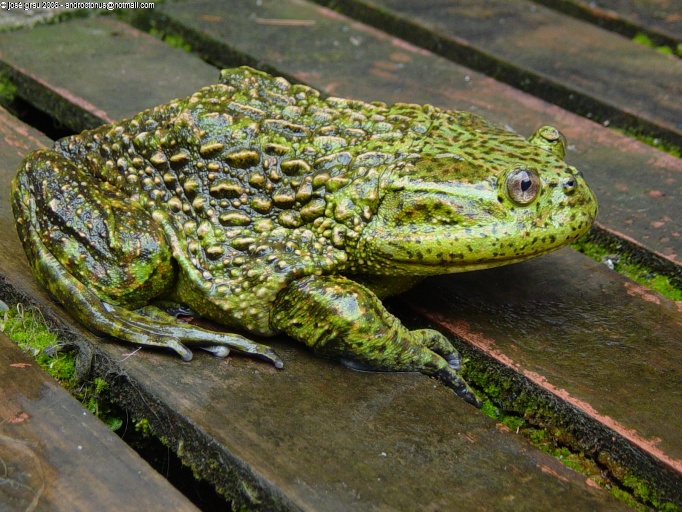
Defenders of Wildlife, one of the Panama Amphibian Rescue and Conservation Project partners will be working with the Chilean government to come up with a conservation plan for the Chilean frog (Calyptocephalella gayi).
Chile is in the news these days for good reason—33 miners trapped 2,000 feet under the earth for 70 days. But with dedication and perseverance, experts from Chile and others from across the globe managed to rescue every single one of these miners as we all looked on. That perseverance and dedication will be critical to rescue something else as well: the Chilean frog (Calyptocephalella gayi, also known as Caudiverbera caudiverbera).
Defenders of Wildlife, which is already helping to save Panamanian species of frogs as part of the Panama Amphibian Rescue and Conservation Project, is preparing a workshop with the government of Chile to design a Conservation Plan for the Chilean frog. This planning is part of the requirement from the Convention on International Trade in Endangered Species (CITES) to include the frog in Appendix III. This means that international trade of these animals is allowed only on presentation of the appropriate permits or certificates.
The Chilean frog is native to Chile and classified as vulnerable by the International Union for Conservation of Nature. Its population has declined 30 percent over the last 10 years as the result of over-exploitation for the food and pet industry and habitat loss for development of agriculture. Like many species of frogs in Panama and across the world, these frogs may also be susceptible to the deadly chytrid disease. Between 2003 and 2007, more than 10,800 wild specimens were imported to the United States for commercial purposes. This little guy is in trouble, but with luck another miracle can be pulled off in Chile. Let’s keep our fingers crossed.
The workshop will take place Nov. 23 in Santiago de Chile, Chile. Participants will include academia, scientists, governmental officials and civil society. For more information, contact Alejandra Goyenechea.
—Cindy Hoffman, Defenders of Wildlife
